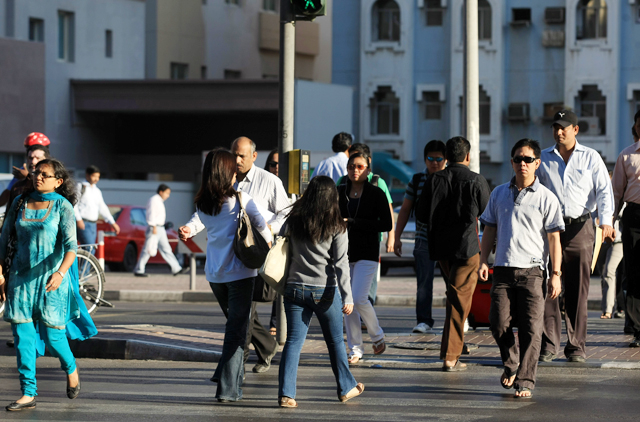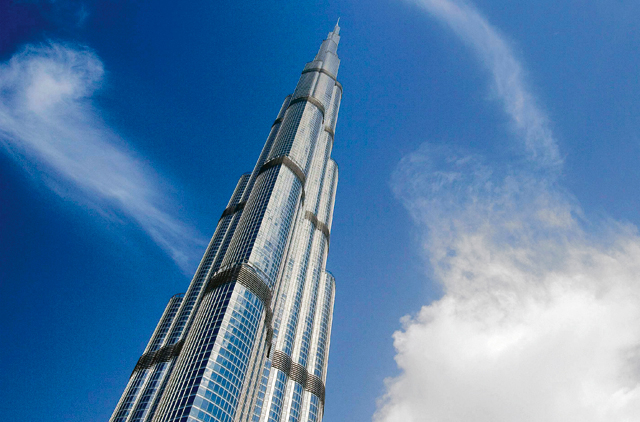The officer asked Hadi, who was woken up by a tap on the window, “Is everything OK in there?” “Um … sure officer,” he replied. The patrol car had noticed his car had been parked at the same spot for hours, with the engine running.
The AC was blasting on this hot, humid summer night, the windows were steamed up raising all sorts of suspicion. Thinking quickly on his feet Hadi added, “My friend’s flight is delayed and I live so far from here to drive home and back.”
Fortunately for Hadi the officer accepted his explanation. But, there was no friend whose flight was delayed. He wasn’t waiting for anyone. And he didn’t live a long way from the airport. Actually, he didn’t live anywhere. Hadi had turned this rental car into a makeshift hotel.
A few days earlier with just Dh200 in his pocket, his whole savings, Hadi moved to Dubai for a new job. But he had no place to stay and didn’t have enough money to rent an apartment or stay in a hotel room, even the cheapest.
So he rented a car to be able to get to and from work and made it his ‘room’ for his first week in Dubai, and bathing at the petrol station.
What would make someone risk everything? Do the unheard of — sleep in a car for five nights.
Hadi had too much to lose. He had a hunger of need. Back home there were no jobs, no opportunity. He had no hope. His back was up against the wall. This was his hope, his chance to succeed, at least to make ends meet. Years later he is succeeding.
When you’re hungry, all you can think about is what will satisfy your hunger and you will do anything to fulfil it. Your mind can think of nothing else when you are up against the wall, when you have a hunger of need.
For well over a century the shores of Dubai have invited people like Hadi who had a hope and a hunger to succeed. Ironically, Dubai itself is a lot like the “Hadis” who have come to Dubai in pursuit of a better future … ambitious to achieve something. Dubai started with a hunger of need when Shaikh Maktoum bin Butti led the tribe on the arduous journey in pursuit of a third type of government — an economic one.
The people that became Dubai craved something more; they wanted to help people to have personal incomes, to have the best life possible. For the better part of two centuries, the leaders had a hunger of need.
Without this hunger there would not be a Dubai. Hunger is foundational and formative to leadership, Dubai-style.
Its history was marked by a hunger of need, not of want. Before the discovery of oil, it was decade upon decade of building for survival. That need led to building infrastructure out of nothing with borrowed resources in order to become the hub for regional trade.
Then, with the discovery of oil, came the farsighted realisation that the oil would run out, so again there was a hunger of need to use the oil to build an economy that is not dependent upon it. The limited oil wealth was used to fund the existing strategy instead of making oil the strategy.
Dubai had to do it. Dubai-style leaders are ambitious; it drives their pursuit, the willingness to achieve what others are afraid to even talk about. This hunger is uncommon.
Over time, this hunger of need becomes a hunger of habit. A Dubai-style leader is hungry for more. The desire to achieve is addictive.
When you see the biggest, tallest and fastest, you feel left out if you cannot lay claim to a super accolade. Ambition rubs off. This environment of being around leaders who are in hot pursuit of more, much more, builds an earnest desire for similar achievements — it gives you the willingness to strive for more.
Combining ambition with a need, a real hunger, certainly arouses action. It gives you purpose.
When you have hunger as a habit, you are hungry even when you’re not — when there is no need. Are you hungry enough?
The writer is a leadership adviser and author of ‘10 Tips for Leading in the Middle East’ and other writings. Follow him on Twitter: @tommyweir.














